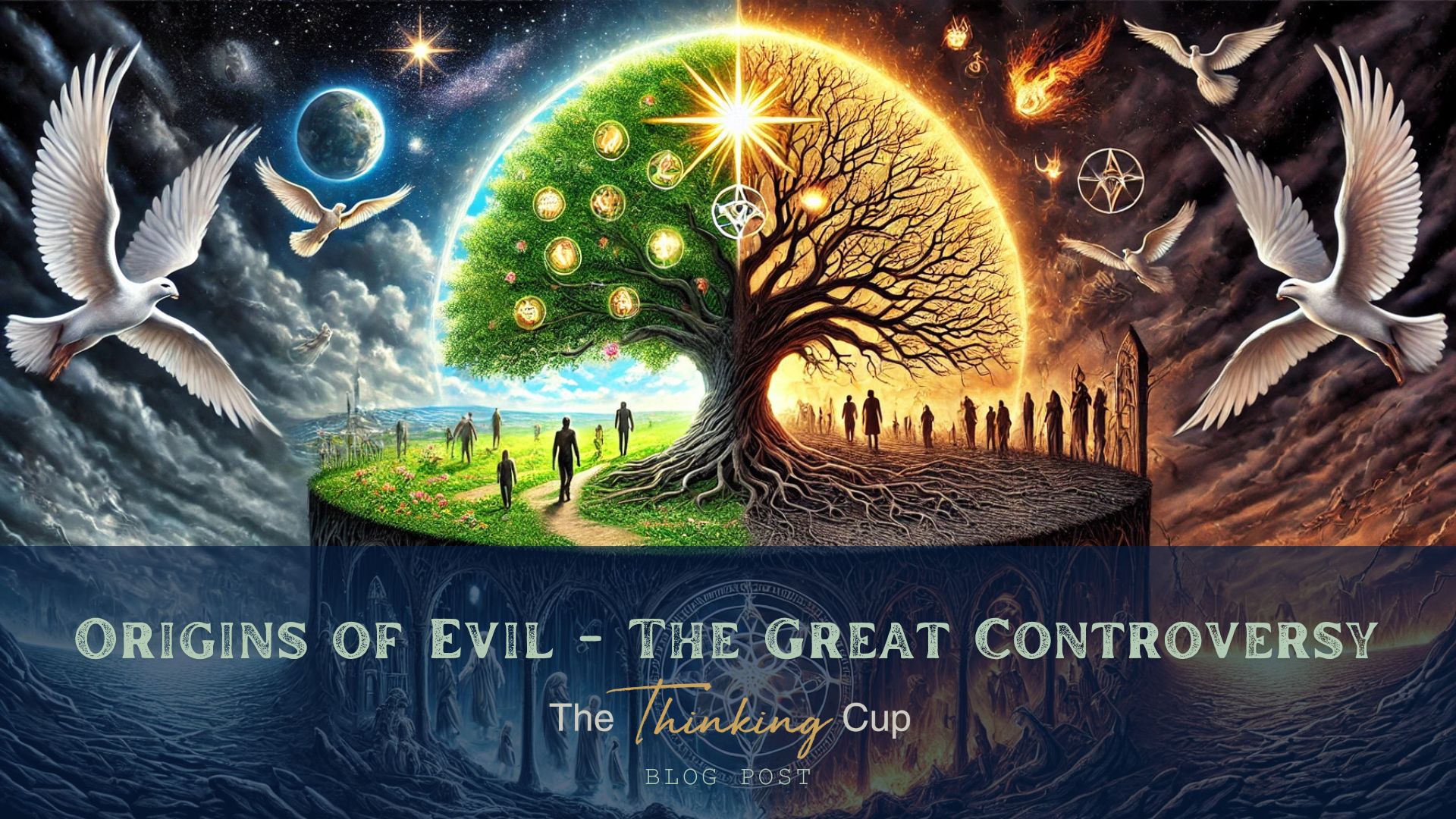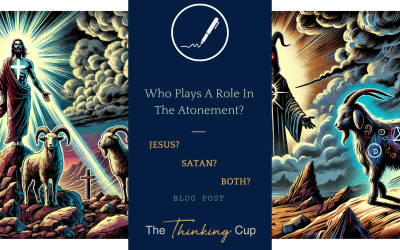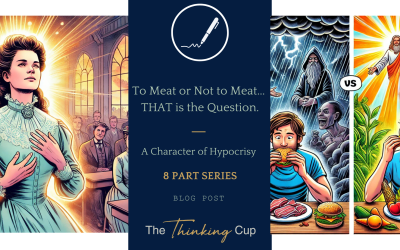“Faith is to believe what you do not see; the reward of this faith is to see what you believe.”
~ St. Augustine
Is Satan a real being? How does our belief around this thing shape our view in Scripture?
The notion that a singular “personified evil being” wields such vast power is deeply unsettling. This figure is often depicted as able to turn anyone away from God, omnipresent in its capacity to afflict countless lives across the globe, and even ruling over the world as its sovereign ruler. For followers of the God of Abraham, Isaac, and Jacob, this raises profound theological questions.
-
- How can such a concept coexist with the belief in an all-powerful, benevolent God?
- Is it truly conceivable that a being with such authority exists, or is this “Satan” merely symbolic—a representation of the spiritual forces and principalities that influence the world’s systems and governments?
Humanity constantly finds itself at the crossroads of good and evil in the grand tapestry of existence. These two opposing forces act as unseen influencers, shaping decisions, actions, and even societal structures. Their struggle is evident in every corner of human life, yet their origins remain a profound mystery.
If evil is so pervasive, where does it come from? This question has perplexed humanity for millennia. Did evil originate from God as part of His divine plan? Is it the work of a flawed creator, as the Gnostics argue with their concept of the Demiurge? Perhaps it stems from the rebellion of Lucifer, a narrative embraced by Adventist theology and others. Or could evil be intrinsic to human nature—an inescapable part of the human psyche? Throughout history, people have sought to externalize the source of evil, searching beyond themselves for answers. This quest has produced varied explanations. The Gnostics pointed to the Demiurge, a lesser deity; the Church Fathers focused on Satan or the devil; and Ellen White, along with the SDA Church, crafted the Great Controversy narrative, depicting a cosmic battle that began before creation. Even in the Genesis account of Adam and Eve, the serpent—and, by extension, Satan—serves as the agent of humanity’s fall.
But what if these stories are less about external forces and more about the tests of human and divine will? Consider the tree in the Garden of Eden. What if it wasn’t so much about the fruit or the serpent but about testing Adam and Eve’s loyalty and faithfulness to God? Similarly, Jesus’ trial in the wilderness might be seen not as a battle with an external enemy but as a test of his inner resolve to embrace his mission as the Messiah. In both cases, the figure of Satan, meaning “the accuser,” played a role—not necessarily as an independent ruler of evil but as an agent testing the boundaries of faith and obedience. The difference lies in the outcomes: Adam and Eve’s failure brought suffering and the proliferation of evil, while Jesus’ triumph provides hope for the ultimate defeat of evil.
This contrast invites more profound reflection. If these trials were designed to reveal character and purpose, perhaps evil is not an independent force but a shadow created by our choices and actions. Could it be that humanity itself is the source of the world’s suffering, with Satan serving more as a mirror to our weaknesses than an omnipotent antagonist?
Anne Frank’s words offer a hopeful perspective:
“How wonderful it is that nobody need wait a single moment before starting to improve the world!” [1]
Join Myles Christian, founder of Answering Adventism, and myself as we discuss the topic of The Great Controversy Theme inside of Adventist Theology. We will be asking ANY Adventist who is brave enough to stand up and defend the Adventist teaching on this topic to join us LIVE as we have an open and honest discussion on the topic!
Live Stream begins at 7 PM CST, January 9th, 2025.
We will be addressing Four Central Claims inside of Adventism with regard to the Great Controversy Theme:
-
- Jesus was exalted and conferred with special honor that was devolved onto Him from God the Father.
- Lucifer became jealous, which caused him to become Satan: The Accuser and The Attacker of the 10 Commandments.
- Mankind was created with this Great Controversy already underway as a part of God vindicating Himself before the universe.
- This put God on trial. His vindication before the universe is the purpose of the Gospel.
Are these Core and Foundational concepts Biblical?
We DO NOT believe so…
Please come and CHANGE OUR MINDS!
[1] Frank, Anne Frank’s Tales from the Secret Annex.






0 Comments